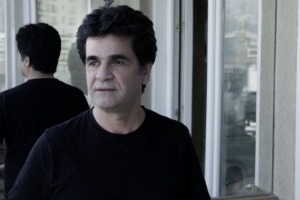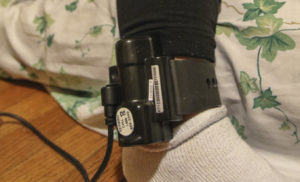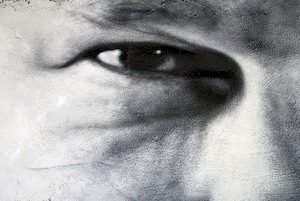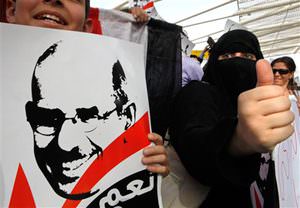Filmmaker, Incarcerated
One of the incidental lessons "This Is Not a Film" teaches is that a film is not a film until it is a film. You can talk about it, outline it, enthuse over it, but it is still just hot air until sets are built, actors engage, cameras roll. And that is what's most touching about this movie. Jafar Panahi is a well-known Iranian filmmaker who has been sentenced to six years in jail and a 20-year ban on making movies (or even talking about them to the press).
Jafar Panahi is a well-known Iranian filmmaker — in trouble with the regime for reasons not stated in this movie — who has been sentenced to six years in jail and a 20-year ban on making movies (or even talking about them to the press). Currently he is under house arrest in his pleasant Tehran apartment, where he fills the days as best he can.
When we meet him, his family is away on year-end holiday and all he has to do is keep company with Igi, his daughter’s pet iguana, who isn’t much to look at but has a cuddlesome side to his nature. In the course of the day covered in “This Is Not a Film,” Panahi talks on the phone to lawyers and friends and entertains some people who drop by on various minor errands (a little girl, for instance, tries to get him to baby-sit her yappy dog, but he frightens Igi).
One visitor is not so innocent, though he is cheerful enough. He’s another director, Mojtaba Mirtahmasb, and, using a small camera and an iPhone, they are conspiring to make a film, which is of course the “Not Film” of the title. It is, they insist, an “effort” and is so described in the end credits. Panahi talks about some of the scenes from the film he was working on when he was arrested, even taping off the outline on the floor of a room in which some of the imaginary movie’s scenes would have taken place. Uncannily, it is the story of a young woman confined to her home because her parents don’t want her to go to university.
Frankly, it’s hard to say what this film would have amounted to. One of the incidental lessons “This Is Not a Film” teaches is that a film is not a film until it is a film. You can talk about it, outline it, enthuse over it, but it is still just hot air until sets are built, actors engaged, cameras rolling. And that is what’s most touching about this movie. Mirtahmasb is trying to distract his friend, give him something to fill his empty, yearning days. And in this he succeeds.
Still, you can’t help but reflect on what a cruel punishment house arrest exacts on a movie director. Writers, painters, composers can continue to work in solitude; indeed, their art demands it. But filmmaking demands bustle — and a small army of collaborators. Panahi and his pal do their best, but it is make-work and, almost subliminally, they acknowledge that fact.
You can see it, particularly, in the way Panahi clings to other visitors before and after Mirtahmasb arrives, such as a young man who arrives to collect the trash. He follows him on his rounds, elicting something like the full story of his life and ambitions. He’s never pathetic about this — he’s a cheerful interrogator — but you do sense his need.
“This Is Not a Film” is, of course, a film, and, as such, it has its problems. It’s only 75 minutes long, but inevitably it has its tiresome passages. In the end, it leaves Panahi essentially where we found him, and where, likely, we would find him tomorrow morning. But that’s not the point. It was smuggled out of Iran. It played the Cannes Film Festival last spring and is now in limited release elsewhere. Its makers and backers obviously hope that it will rally the international cultural community to his plight (and by extension that of other dissident artists). In any case, Panahi is a likable and, I think, an optimistic individual worth getting to know. And cheer for. I think all of us can spare 75 minutes to share if not his largely buried pain, then his plight. And remember that for some people, the simple act of going to a movie, and maybe having dinner afterward, is more of a privilege than we imagine.
Your support matters…Independent journalism is under threat and overshadowed by heavily funded mainstream media.
You can help level the playing field. Become a member.
Your tax-deductible contribution keeps us digging beneath the headlines to give you thought-provoking, investigative reporting and analysis that unearths what's really happening- without compromise.
Give today to support our courageous, independent journalists.









You need to be a supporter to comment.
There are currently no responses to this article.
Be the first to respond.